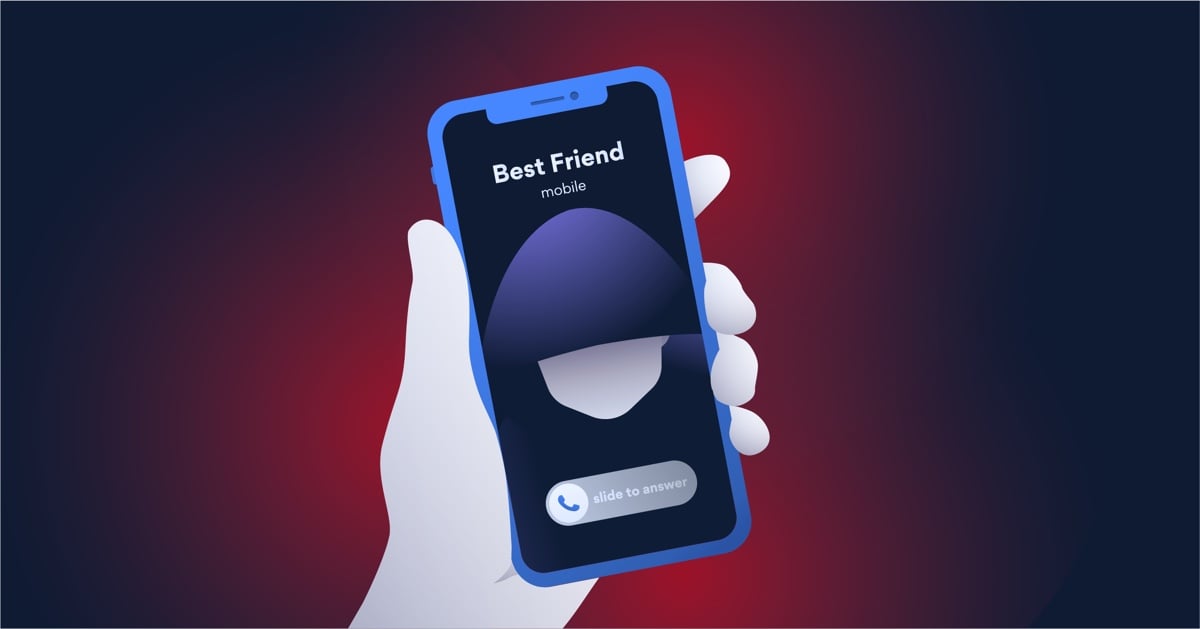Neighbor spoofing explained
Scams are getting more sophisticated, but you’d be surprised at how well good old cold-calling scams still work. Think you’d see through a neighbor spoofing scam? Its victims probably did, too!

What is neighbor spoofing?
Neighbor spoofing is when scammers use reliable-looking phone numbers to disguise their identities. The phone number might have a prefix with your area code or look like it belongs to a local business or even someone you know. Fraudsters could use your number to mask their IDs as well, meaning they could scam someone who trusts you or uses your phone number to verify your identity.
When you pick up the call, scammers will see that you have an active phone line and might flood you with even more calls in the future. They might also start a conversation with you and try to extort your personal information, credit card details or direct you to a dodgy website.
How neighbor spoofing works
Con-callers use various techniques to disguise themselves behind legitimate numbers. They can also rotate their numbers to avoid being blocked or reported. The idea is that people typically answer numbers from the area they live in or that they recognize. That means a scammer has more chances to get someone on the line.
Fraudsters can collect usable phone numbers online. We frequently leave our numbers in the open when filling various registration forms, signing up for services, etc., without even suspecting that scammers might get hold of them. Numerous breaches and leaks also expose millions of numbers for illegitimate uses.
Phone spoofing itself is not illegal in most countries. Various agencies and organizations use it to disclose their numbers. However, it is unlawful to use it for malicious purposes.
How to stop neighbor spoofing
It is quite challenging to completely shield yourself from these calls, but you can do the following to minimize them:
- Put your number on a national do-not-call list. These lists protect people from telemarketing and cold-calling. If you still get a call after registering yourself, you can report a company for violation of the list. However, scammers usually do not follow the law, so this list might not prevent them from calling. Also, you might not get telemarketing offers that could interest you.
- Check whether your phone carrier provides blocking options. Some companies have lists of malicious callers and can protect their users from them. If you receive a scam call, you can also report or block individual callers. There are also phone-blocking apps available on the market. However, because these scammers usually rotate their numbers, blocking a single number might not be enough.
- Do not answer calls from unknown numbers (even if they contain a familiar area code). A legitimate caller might leave a voicemail or use another communication channel if they have something really important to say. If you get a suspicious call from a business entity or a government agency, you can always call them yourself to double-check whether they tried to contact you.
What to do if you picked up the phone
If you answered a suspicious call and realized it’s fraudulent, you should:
- Hang up immediately. It is pointless to engage in conversation with scammers as their usual goal is to steal info.
- Never follow any instructions the caller gives you, even if they say they will not call you again if you do it.
- If the call might be legitimate but you have even the slightest suspicion, don’t give out your details or perform any actions requested by a caller. You can always call back to the company or organization you got the call from to double-check whether the call was genuine. Experienced fraudsters can imitate the tone of voice and manners of legitimate customer representatives and might sound very convincing.
- Report a call immediately to local authorities or your service provider for further investigation. They might also warn other users so they don’t become victims.
Want to read more like this?
Get the latest news and tips from NordVPN
